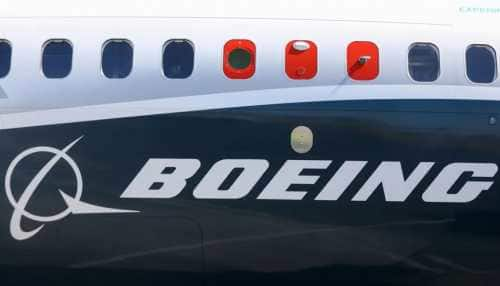- News>
- Aviation
FAA Warns Of Potential Issue In Boeing 737 MAX Engines; SpiceJet, Akasa Air To Take A Hit?

Domestic budget air carriers SpiceJet and Akasa Air currently operate the Boeing 737 MAX aircraft with CFM engines in India.
It seems like the troubles with the Boeing 737 MAX planes are not ending. The US aviation watchdog FAA has now issued a warning about potential overheating issue in certain CFM engines powering the Boeing 737 MAX planes, reported AP. Domestic budget air carriers SpiceJet and Akasa Air currently operate the Boeing 737 MAX aircraft with these engines in India. Around 29 Boeing 737 MAX aircraft are operating in the country. SpiceJet, Akasa Air and Air India have 737 MAX planes on order as well. American aircraft maker Boeing said it has identified the measures to mitigate the issue.
According to Boeing, the measures to mitigate the potential issue have been identified and it is working with customers to deploy those measures while a permanent fix is developed. Boeing will receive updated Airplane Flight Manual operational guidance to address the issue in the near term and is working with the regulator to develop a long-term fix.
While noting that the inlet is produced by Boeing, the spokesperson said, "due to the very specific weather and operational conditions required to create the potential for this issue, it only recently surfaced as part of our design analysis". In a detailed statement, a Boeing spokesperson said it supports the rule issued by the FAA addressing a potential overheat issue for specific parts on the engine inlets on 737 MAX airplanes.
"Although there have been no safety incidents, under a very specific combination of weather and operational conditions, the engine anti-ice system can create the potential for a portion of the inlet structure to exceed its design temperature range," the spokesperson said.
In a communication on Tuesday, the Federal Aviation Administration (FAA) has flagged possible overheating in specific parts on the inlets of CFM Leap-1B engines that power 737 MAX planes.
This follows a "report indicating that use of engine anti-ice (EAI) in dry air for more than five minutes during certain environmental and operational conditions can cause overheating of the engine inlet inner barrel beyond the material design limit, resulting in failure of the engine inlet inner barrel and severe engine inlet cowl damage," the regulator said.
If the condition is not addressed, the watchdog said then it could result in departure of the inlet and potential fan cowl failure and departure from the airplane. "The departure of the inlet may cause fuselage and/or window damage, potentially resulting in decompression and hazard to window-seated passengers aft of the wing and/or impact damage to the wing, flight control surfaces, and/or empennage, which could result in loss of control of the airplane," the communication said.
In June, the FAA received a report indicating that flight testing and analysis revealed that the use of EAI in dry air for more than five minutes during certain combinations of altitude, total air temperature, and N1 settings can result in engine inlet cowl temperatures exceeding design limits when not in visible moisture.
"Excessive heat buildup can cause overheat of the engine inlet inner barrel beyond the material design limit, resulting in failure of the engine inlet inner barrel and severe engine inlet cowl damage. There have been no reports of in-service failures of the engine inlet inner barrel to date," the FAA said.
After nearly two-and-a-half years, the Directorate General of Civil Aviation (DGCA) lifted the ban on commercial operations of 737 MAX planes in India on August 26, 2021. All 737 MAX planes were grounded in the country on March 13, 2019 following two fatal crashes involving the aircraft.
On October 29, 2018, a 737 Max aircraft operated by Lion Air had crashed in Indonesia, killing 180 people. Later, on March 10, 2019, an Ethiopian Airlines 737 Max plane crashed on March 10 near Addis Ababa that left 157 people dead.
